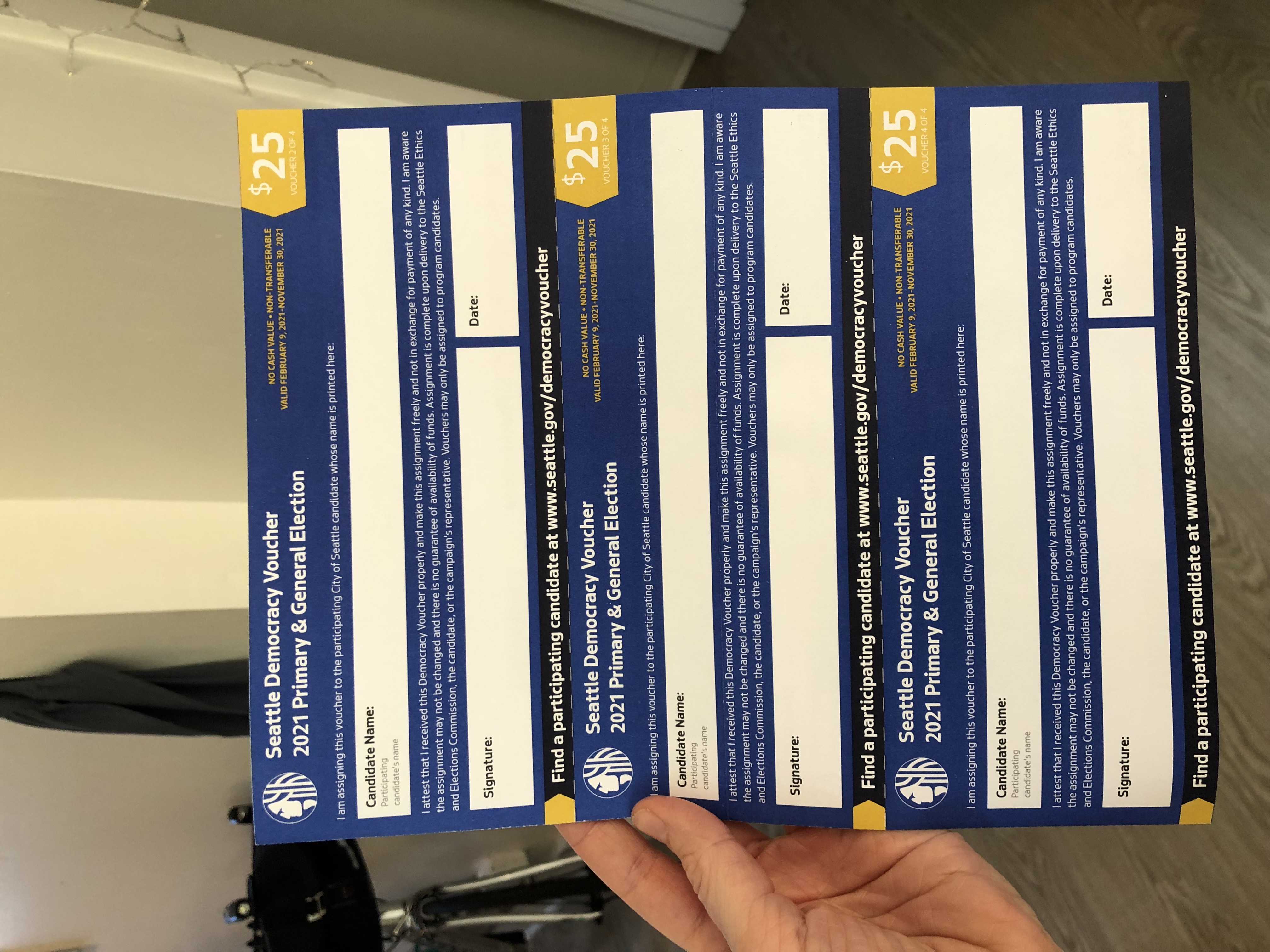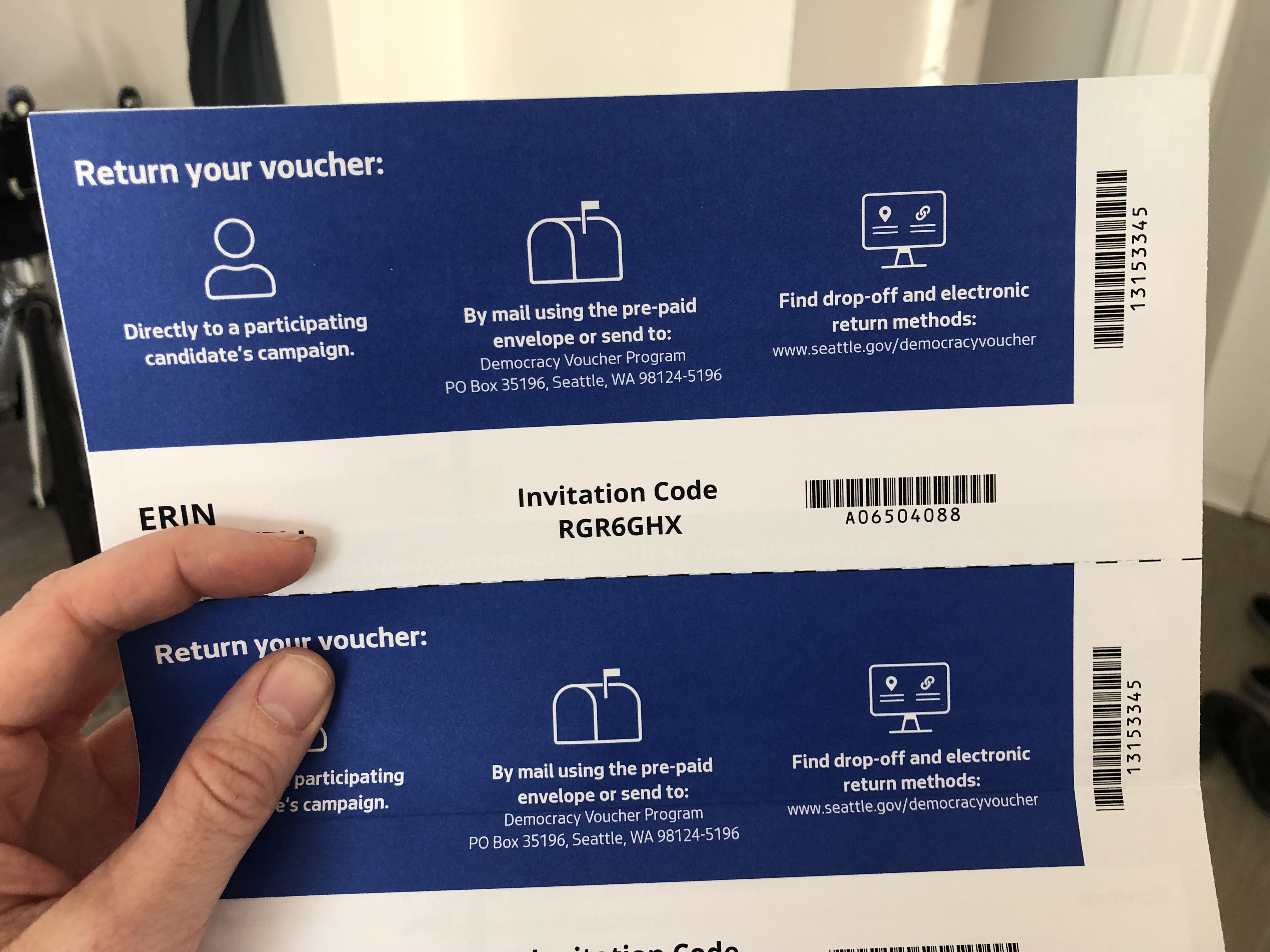As a recently-registered Seattle voter, I was confused when a packet containing something called “Democracy Vouchers” arrived in my mailbox. How did they relate to voting? Could I use them for booze? So, I hit the WWW to find out.

Essentially, each registered voter gets four $25 vouchers. They select one or more municipal election candidate(s) (e.g., Mayoral, City Council, or City Attorney). They fill-in the voucher(s) with the name(s) of the selected candidate(s) and mail the little guys in. (This process can also be performed online by entering codes that are printed on the vouchers). The funds represented by the vouchers are paid from a city fund to the campaign(s) associated with the selected candidate(s).
Now there are some restrictions on which candidates are eligible to receive funding from the vouchers. They must:
• have previously raised $1,500-$6,000;
• agree to campaign finance restrictions (like accepting no more than a certain amount of non-voucher donations per any individual contributor);
• agree to cap campaign spending to a determined limit; and
• have not received contributions from entities with more than $250k in service contracts with the city.
But there’s one catch – when you submit a Democracy Voucher, your name and your selection(s) are publicly displayed on the city website. So, you better be willing to stand behind your vote!

The Democracy Voucher program effectively democratizes campaign fundraising. The vouchers give people who might not have the means to donate the ability to participate and give people who would not otherwise donate a reason to do so. Also, the voucher eligibility requirements on candidates minimize the influence of big donors.
At the same time, the concept of taxing residents (in the form of a $3 million+ real estate tax) to fund election campaigns doesn’t sit quite right. Especially when most Seattleites hold an attitude of resentment towards municipal election campaigns.
Why not just ban campaign donations, if the goal is to level the playing field? Or, issue vouchers that have the opposite effect, like vouchers that can be cast towards disfavored candidates to effect caps on their donation potential. For example, say each candidate starts with a $300k donation limit and each voucher cast lowers that limit by $25. This might create a scenario where independently wealthy candidates have an advantage. But don’t they have an advantage regardless of fundraising limits, bans, etc.?
One cool thing about Democracy Vouchers is that they incentive voters to research the candidates in advance of the elections. Like, tbh, I still don’t know who all is running for mayor or city council or whatever. So, I better read-up. And vouchers need to be submitted promptly to be effective. The city has a limited sum available to be distributed to candidates for the voucher program. And each candidate can only receive a limited number of vouchers. So vouchers that arrive too late are basically toast.
I’m in constant awe at how different Seattle is from Atlanta, from whence I came. In the dirty south, campaign funding is the business of big chicken and soda empires. So, it’s cool that even nobodies like me can play a role in propping-up campaigns. Bring on the races!
Comments